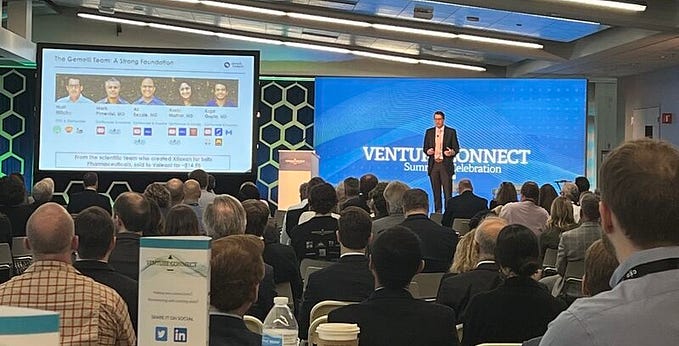Why are Venture Capitalists sharing their profits with the crowd?

$5M was raised from the crowd in about two weeks by Arlan Hamilton’s VC, Backstage Capital when the new rules kicked off in March 2021.
…now we’re seeing other VCs do the same. Why?
TLDR: It’s a much easier way for VCs to thrive. It
- reduces risk to the VC and crowd
- provides $ to recruit better VC team talent
- creates more LPs (a Limited Partner is an investor in the VC private fund)
- and help startups succeed
However, it’s still ILLEGAL for non-wealthy investors to invest in a VC private fund. Huh? How are VCs taking money from non-wealthy investors via Reg CF (the rule that allows even the $100 investor to participate locally and in startups they believe in)?
The $100 (or $1K) investor isn’t investing in the VC’s Private Fund. Let me break this down.
A VC is an individual or group who invests other people’s money …typically into startups e.g. ‘paper napkin’ idea, ‘garage-stage’, …or a little later future potential Google’s and Apple’s of the world. Yes, there’s a ton of potential money in this, but also a ton of risk.

- The LPs / Venture Capital Private Fund Investors still works the same as they have (though there are additional ways to recruit them…more on this later).
- The GP still receives Carry and if applicable, Management Fees.
- The VC is still run by a Fund Manager and their team via the GP. This Investment Advisor role to the VC Private Fund doesn’t change.
The only difference between the way traditional VC’s work and a #CommunityVCFund is that in the latter, the GP entity sells interest in a portion of the Carry and Management Fees it receives …to the Crowd.
Why in the world would a VC take a $100 check?
…or $1K or $10K or anything lower than a VC would typically take? Why wouldn’t they is probably the better question?
VCs now have a world with #CommunityVC where:
- The VC’s GP doesn’t have a scrape by with a limited staff (e.g. $200K/yr assuming 2% management fee on a $10M fund). Backstage raised $5M in ~2 weeks into the GP and her private fund is co-funded by Sequoia and other well known VCs. Others VC’s we’re finding are following suite.
- The Crowd can help make the startups successful that the VC Private Fund’s accredited investors fund! Don’t take my word for it. Follow the data that the Investment Crowdfunding industry publishes. Crowds hundreds and thousands help become channel partners, sales agents, make intros, etc.. This can help increase the success rates of startups.
- The VC can use the Regulation Crowdfunding (Reg CF) raise to identify new LPs or build up online investor syndicates that invest deal by deal. (more below)
- The playing field is leveled. Many of the VC Fund Managers I speak with couldn’t even invest in their own funds before the accredited investor definition was updated in 2020. Talk about irony.
Additionally, I don’t want to bore people, but many of the mechanical problems have been solved with SEC rule changes rolled out March 15, 2021. e.g. cap tables / public company registration is solved with CrowdSPV
Accredited investor (“LP recruitment” or Syndicate Investor Recruitment) via a #CommunityVCFund
We’ve been talking about the fact Reg CF provides a way to recruit new accredited investors to GP/LP Funds or accredited investor syndicates for over 2 years. Here’s a recent example from a VC:
Backstage did it right on their Reg CF offering page. Go check it out. https://republic.co/backstage. She raised $5M from the crowd and had a link for accredited investors to ALSO join her syndicate (and/or her VC GP/LP fund).
What is a Syndicate? A group of accredited investors who can invest in accredited-only offerings deal by deal (aka the model AngelList pioneered in 2012) or into the VC’s future Private Fund.
Well that’s a nice cycle especially considering ~60% to 70% of the capital going into Reg CF is $ from accredited investors who HAD NO IDEA there was even a term for their wealth status before they saw a startup making a Reg CF offering. They had been told they had this thing called an IRA and 401(k) that can invest in companies on the stock market, but not in the ‘exclusive’ deals startups and other private companies offer.
How does this change the operations of a traditional VC?
Let me provide one operational change example. In the CommunityVCFund model emerging, a GP has to shift into more of an accelerator model. It has to identify and pair the needs of its portfolio companies with the group of 100’s or 1,000’s it now has as investors (in the GP entity) to see who can help startups succeed.
aka. The GP has the individual portfolio company startup leadership pull up their list of Objectives and Key Results, it reframes these for the ‘crowd’ as asks which helps the startup get from point A to point B …hopefully quicker and more efficiently than the GP management team of limited size could do on their own.
Want to see examples. Just follow Backstage Capital.
At the end of the day, I hope a moral society who doesn’t exist purely for the sake of financial gains and at the detriment of their community will win out!
That drives innovation, inclusion, and a leveler playing field so we help bridge the wealth gap while helping to build a future together we all want for our children and community.
More on traditional VC and a CommunityVCFund.
Hungry for more? william [ at ] incolo.io
Disclaimer: This article is for educational purposes ONLY and NOT a solicitation to invest. Investing in startup businesses is risky. Returns aren’t guaranteed, and you could lose your entire investment. Never invest more than you are willing to lose. This article is not meant to provide investment, legal, or tax advice and no party listed is an investment advisor, attorney or tax advisor.








